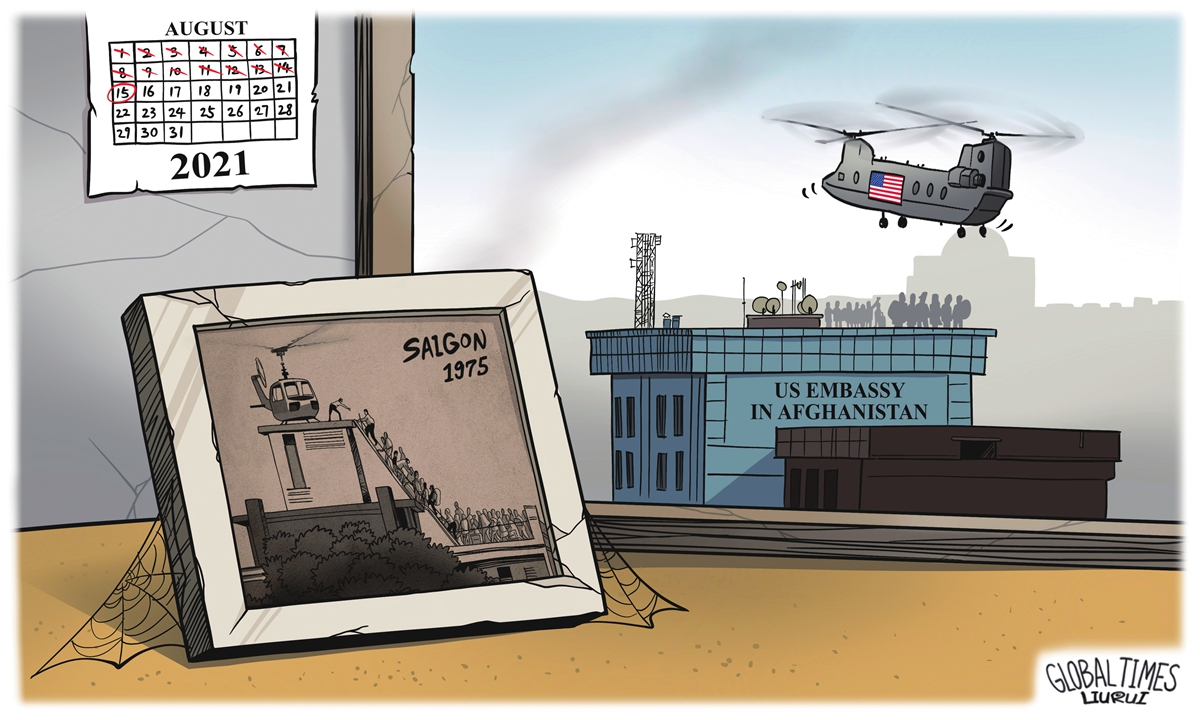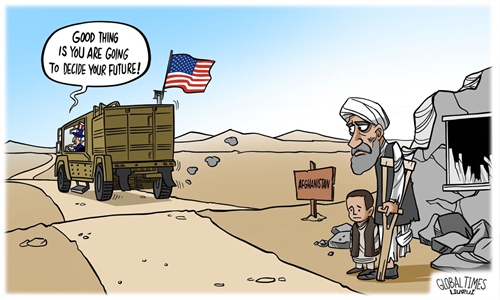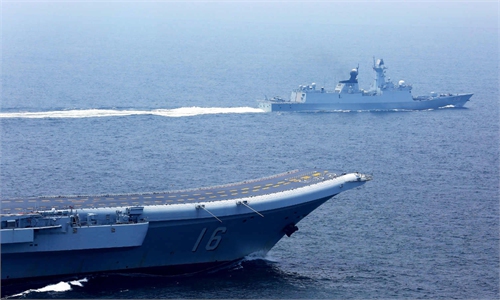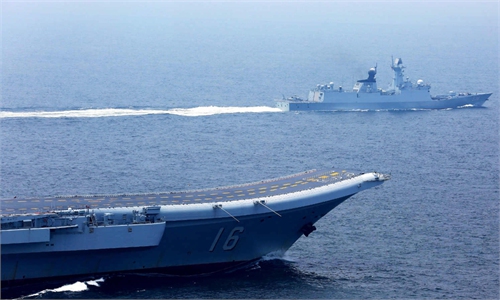Conflict of interest over US flag officers reflected in Afghan retreat, leaves doubt over US commitment to Taiwan defense

Illustration: Liu Rui/GT
A military guarantee over Taiwan island's split from China is claimed to be vital to US national security. Similar claims were used to justify our 20-year misadventure in Afghanistan. Today we know that a generation of young American men and women sacrificed their lives for a cause US leaders long ago knew was doomed to failure. As tensions with China grow, a new generation of young idealists risk falling into a recruitment mire that could conceivably end in renewed and tragic disappointment.
The monument to the most recent sacrifices of American patriots in Southeast Asia is a depression in the ground on the mall in Washington, DC. It serves as an omen of the human cost of bad US policy. Proponents of war with China may have difficulty convincing Americans with long memories that the island of Taiwan is different from Vietnam and failed military expeditions that have followed. Still, America's young servicemen are enthusiastic warriors, the best of any generation, and they will always trust the assurances of their senior leaders that a directed cause is good, and that a tragic end is not necessarily preordained.
If US national security is our aim, and valid skepticism over the Taiwan cause remains, there can be no logical explanation for a renewed cycle of carnage and national humiliation in Southeast Asia; unless there are considerations which transcend the US' national interest. Misguided influences perpetuated the war in Afghanistan, and similar forces could press for war with China.
For example, it was recently reported that a major US defense contractor told its investors the US' withdrawal from Afghanistan was "hurting its profits," an odd priority when the rationale for the war's continuation had collapsed. However, most if not all major defense contractors employ one or more retired four-star flag officers on their boards. Most Americans take for granted that such exceptional men and women are beyond reproach by virtue of their years of service. Two well-known examples come to mind.
In 2013, General James N. Mattis, USMC (Ret.) was hired to serve on the Board of Directors of General Dynamics (GD). He was later confirmed as the Secretary of Defense (SECDEF) in 2017. In 2019 he was rehired by GD to again serve on its board. Similarly, in 2016, General Lloyd J. Austin III, USA (Ret.) was hired to serve on the Board of Directors of what is now Raytheon Technologies Corporation, and was in 2021 was confirmed as the current SECDEF.
Historically, Congress has been deferential to retired top brass during confirmation processes. Generally, their characters are viewed as being resilient or unaffected against conflicts of interest. All analysis, advice and decisions by these celebrated Americans are assumed to be in the national security interest. Consequently, restrictive guidelines on their various military-industry-government transitions are frequently waived.
Still, checks and balances in government should always take into account that humans are flawed. On active duty, the words and deeds of successful flag officers evidence a pure dedication to the national security interest. For their selfless service they are rewarded with generous retirements and enviable, earned reputations. Alternatively, as private citizens in the defense industry any executive's words and deeds are expected to evidence a dedication to corporate interests, such as business expansion and profit. Rewards include generous salaries, and solid credentials in post military industry careers.
Today we have evidence that some in the defense industry have expressed concern the end of the war in Afghanistan would hurt corporate profits at the same time government decision makers sought to end the war in the US national interests. Measures of performance in the military and business worlds are often different, and at times stand in opposition.
Separately, Taiwan island remains a dominant topic under any SECDEF. Billions of dollars flow to our defense industry to arm the island for its self defense, and to maintain the US military's capacity to intervene if the Chinese mainland elects to reunify by force. The danger of the resulting brinkmanship appears to consciously disregard the risk that the US may well lose such a war. For any serving SECDEF this could be perceived by some as a knowing perpetuation of specific and substantial threats to the health and safety of Soldiers, Sailors, Airman, Marines, and American citizens.
As senior term-limited appointees, SECDEFs are all subject to the merit system principles and senior leader standards of ethical conduct. If any SECDEF were to be influenced by a conflict of interest, the knowing perpetuation of such threats through action or inaction could violate ethical standards, making that SECDEF subject to removal.
Any senior leader could dispel concerns by articulating compelling justifications for decisions that contain inherent risk. Also, it is impossible to read the mind and know the intent of any person. Subjective trust and confidence are the ultimate arbiters. But the trend of four star flag officers participating in revolving door transitions from military to defense contractor and now back to government is increasing. Despite expressed trust and confidence in their impeccable characters, these repeated transitions make them vulnerable to questions and perceptions, even if they are in fact unwarranted.
SECDEFs whose tours were both preceded - and followed - by rewarding defense industry contracts cannot be confidently certified as being beyond reproach. The impact of outsider perceptions regarding revolving door co-option of our senior officials should be addressed in depth; a new war that will certainly generate wealth for some, but possibly bring great harm to all Americans.
The author is a retired Marine Corps infantry officer who now serves as a US civil servant in the Pentagon. Opinions are of the author and do not represent the US government. opinion@globaltimes.com.cn



